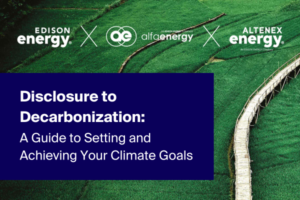
In December 2019, Ursula von der Leyen, head of the European Commission, presented with great fanfare the so-called "Green Deal." The package consisted of new laws and directives, goals and multi-billion-euro funding opportunities designed to transform the continent into a sustainability powerhouse and a model for the rest of the world. The initiative aimed to reduce greenhouse gas emissions by 55 percent by 2030, compared to 1990 levels, and to net zero by 2050. Additional goals were added, such as making farming more sustainable, rewilding large swaths of Europe’s natural areas and halving pesticide use in agriculture, among others.
But four years later, progress on green policies in Europe is stalling or, worse, going backward. Instead of moving ahead with bold actions to fight climate change and biodiversity loss, many efforts are under attack, have been watered down, or are even being reversed in individual member states and at the EU level. Rattled by Russia’s war against Ukraine and global instability, EU countries are scrambling to secure alternative sources for fossil fuels instead of accelerating renewable energy use, and they are wary of imposing new emissions-reduction rules on the auto industry. Faced with a string of electoral victories of right-wing populist parties in Italy, Finland, Sweden and Hungary — often with strong support from farming communities — issues such as protecting biodiversity have moved from a hard-won central position to the fringe. Europe’s role as a green frontrunner has been fundamentally called into question as it faces strong political forces in many capitals.
In Germany, conservative state governors, who once hugged trees in election campaigns, are ridiculing environmental policies.
Germany, the EU’s most populous state and its largest economy, exemplifies the recent shift. When Steffi Lemke, the German cabinet minister in charge of the environment, spoke at the country’s most prestigious environmental awards ceremony in late October, she laid out the issue bluntly. "As ecologists and environmentalists, we underestimated how great the resistance would be when we started to bring the goals of the Paris climate agreement and the Montreal biodiversity agreement to life," the Green Party member said. "But now we face the wall of those who want to prevent this and who don’t want to move forward."
Only a few days later, Christian Lindner, leader of the neoliberal Free Democratic Party, which shares power with the left-leaning Greens and the center-left Social Democratic Party in Germany’s coalition government, proved Lemke’s point. Citing energy insecurity due to the Ukraine war, Lindner, who is also Germany’s finance minister, withdrew his party’s support for a crucial agreement between the governing parties to phase out the nation’s coal-burning power plants by 2030. "Until it is clear that energy is available and affordable, we should end dreams of phasing out coal-fired power" by that year, he said. The goal of the phaseout was to create additional pressure for utilities to expand wind and solar farms as fast a possible. Without the 2030 deadline, that pressure is much reduced.
Earlier in the year, the Free Democrats weakened the Greens’ most important piece of legislation, which aimed to replace heating systems that run on oil and gas with heat pumps and renewable energy sources. In addition, the Free Democrats, responsible for the government’s transport policy, have blocked all attempts to reduce car traffic or impose a national speed limit on autobahns. The country’s chancellor, Olaf Scholz, from the Social Democratic Party, has largely given the Free Democrats a free hand in their anti-environment course.
Scholz fears that ever-stricter rules on heating and car use will further increase support for hard-right parties, who promise to abandon environment targets altogether. Populist sentiments have run high in Germany since the summer, when the influential Bild tabloid — co-owned by KKR, one of the largest investment firms serving the U.S. fossil fuel industry — launched a months-long campaign against an alleged "Heiz-Hammer," or heating hammer, that was seen as forcing sudden changes upon ordinary people. Neoliberals and conservatives "have made the Greens public enemy No. 1," Sudha David-Wilp, director of the Berlin office of the German Marshall Fund, a research institute, told The New York Times. Conservative state governors, who only a few years ago hugged trees in election campaigns and promised to save dwindling insect populations, are ridiculing or fiercely attacking environment policies, warning of a looming "Verbotstaat," a term for government overreach.
We urgently need a signal to Europe that Germany will take further steps.
Brigitte Knopf, deputy chair of the scientific body in charge of monitoring Germany’s progress toward its climate goals, is deeply concerned. The nation has committed to shrinking its CO2 emissions to 65 percent below 1990 levels by 2030. Yet the decrease is not fully supported by concrete measures. In order to comply with its year-to-year goals, Germany would need to prevent cumulative emissions of about 1 billion tons of CO2 until 2030. But "even after the government passed its most important CO2 reduction package this summer, there is [an emissions] gap of 200 million tons" — a 20 percent shortfall — mainly in the areas of heating and transport, she warned.
Knopf, a physicist who also serves as secretary general of the Berlin-based think tank Mercator Research Institute on Global Commons and Climate Change, is worried that the German government will set a bad example in the EU and neglect its obligations under the Paris climate accord. "We urgently need a signal to Europe that Germany will take further steps," she said. "But right now, the climate gap is simply accepted."
Since the EU’s Green Deal was launched in 2019, some progress has been made across the 27 nations. Greenhouse gas emissions have fallen by 31 percent compared to 1990, according to new data from the European Environment Agency. The EU has created a powerful emissions trading system that puts a price on CO2 and reduces available allowances year by year. By 2028, this system is planned to include 75 percent of all energy-related emissions.
But there’s still a long way to go. CO2 emissions have to decrease sharply, mainly in areas such as heavy manufacturing and steelmaking, which are difficult to decarbonize, and emissions from vehicles with combustion engines, which means cutting into people’s routines. At 23 percent, the share of renewable energy is far below the 2030 target of 42.5 percent.
Meanwhile, biodiversity in Europe continues to dwindle. Populations of formerly common birds inhabiting farmland have shrunk by more than one-third since 1990. Protected areas of land and sea cover far less than the 30 percent target, and a new study has just revealed that nearly one-fifth of all European plant and animal species are threatened by regional extinction, a much higher share than recent Intergovernmental Platform on Biodiversity and Ecosystem Services assumptions. Last week, a tentative agreement was reached in Brussels on what’s been called the "world’s first nature restoration law," which aims to put in place measures to restore 20 percent of the EU’s terrestrial and marine ecosystems to good condition by 2030, and to restore all degraded ecosystems by 2050. But it came with so many caveats and concessions that environmental organizations were not in a mood to celebrate.
Funds originally destined for the transition to a greener economy have been redirected to make Italy a natural gas hub.
In many smaller EU countries, environmental progress has spawned a full-blown backlash. In Slovakia, the newly elected populist prime minister, Robert Fico, wanted to appoint an infamous climate-change denialist and anti-environment provocateur as environment minister, mimicking Hungary. Slovakia’s president, who is not part of the government, took the unusual step of rejecting the candidate for failing to support the scientific consensus on climate change. Fico, whose government includes left- and right-wing populist parties, then brought in a substitute who presents as more moderate but has a history of weakening laws to protect Slovakia’s nature, according to environmentalists who cite his opposition to stricter protection for the country’s national parks.
After right-wing populists led by Giorgia Meloni came to power in Italy in fall 2022, they swiftly retracted environmental commitments made by the previous government. "No one in this government really cares about climate change," says Giuliana Biagioli, an economic and environmental historian who is president of Leonardo-IRTA, a sustainability research institute associated with the University of Pisa. Funds originally destined for the transition to a greener economy have been redirected "to make Italy a gas hub" in response to supply problems from Russia, Biagioli says. In her assessment, "the urgent need to find other ways to energy provisioning has pushed commitments to decarbonization into the background." She thinks it will be almost impossible for Italy to help the EU reach its emissions goals.
Similar developments are underway in the continent’s far North. Scandinavia’s reputation as a champion of green progress took a big hit after coalitions that include right-wing populist parties were recently elected. The new government in Stockholm cut funding for climate measures and reduced taxes on petrol in one of its first acts. Mattias Goldmann of Sweden’s 2030-secretariat, a watchdog NGO, called the cuts a "gasoline-soaked budget fuse."
In Finland, the newly elected right-wing government cut taxes meant to further reduce CO2 emissions, stopped projects that would have improved the capacity of Finland’s extensive bogs to sequester carbon, and has failed to take steps to protect old-growth forests from logging for energy production, says Liisa Rohweder, CEO of WWF Finland.
The backlash in many EU countries mirrors developments in the U.K., where the conservative government of Prime Minister Rishi Sunak is reversing climate-friendly policies and planning to "max out" oil production.
Frans Timmermans, who acted as vice president of the EU commission until August and is considered the architect of the bloc’s Green Deal, sounds the alarm that Europe could fall behind on its goals. Timmermans left his Brussels post to run for prime minister of the Netherlands in elections scheduled for Nov. 22. He is pursuing a "Dutch Green Deal" to save his legacy, at least in his home country. "The rest of the world doesn’t stand still" in the green economic transition, he warned at a recent campaign event, citing the U.S.’s Inflation Reduction Act, which focuses on green technologies and infrastructure, and China’s "renewable energy revolution."
Many parties are afraid to talk about the environment, because the argument is that we have completely different crises now.
Environmentalists also worry about Poland, even though the right-wing populist, anti-environment coalition recently lost its majority. Green campaigners fear that the new coalition, which has yet to form, will not live up to its pledges to increase renewable energy and protect old-growth forests in the Carpathian Mountains. Says Marek Józefiak, of Greenpeace Poland, "What worries us is that for now, environmental issues are not listed among their priorities."
Nor do they seem to be priorities in Brussels anymore. EU commission president von der Leyen finds herself in a balancing act between implementing the Green Deal and rallying support from her conservative European People’s Party (EPP) for a second term starting in 2024. While von der Leyen has stayed personally committed to climate and biodiversity action, the EPP has recently become increasingly fierce in its resistance to new environmental measures. It has even employed disinformation strategies, claiming in social media posts that rewilding wetlands will lead to the abandonment of whole villages.
Emboldened by electoral victories in member states, the EPP successfully weakened the "Nature Restoration Law" in negotiations, softened goals on wetlands restoration and limited the law’s scope. When key players carved out a final agreement earlier this month, upon which the European Parliament will vote in February, they gave up on obliging member states to reach ambitious nature restoration goals by certain dates, settling instead on prescribing lofty "efforts."
"It is clearly noticeable that countries are vacating positions that they helped to decide on just two years ago," says Jutta Paulus, a member of parliament from the Green Party who has been involved in several high-level negotiations. "In some areas we still see progress, but in many others, we are regressing."
Back in 2019, Greens performed very well in European elections, which raised the profile of environmental topics. Paulus shares the fears of many NGOs and scientists across Europe that climate and biodiversity policies are increasingly being pushed to the sidelines: "Many parties are currently afraid to talk about the environment at all, because the argument immediately comes up that we have completely different crises now, as in Ukraine and the Middle East, and we have to stop with the [so-called] ‘flowery stuff.’"
But Greenpeace Poland’s Józefiak pushes back on this view of environmentalists’ concerns: "We want what our lives depend on" — a healthy planet — "to be taken seriously and urgently."
- SEO Powered Content & PR Distribution. Get Amplified Today.
- PlatoData.Network Vertical Generative Ai. Empower Yourself. Access Here.
- PlatoAiStream. Web3 Intelligence. Knowledge Amplified. Access Here.
- PlatoESG. Carbon, CleanTech, Energy, Environment, Solar, Waste Management. Access Here.
- PlatoHealth. Biotech and Clinical Trials Intelligence. Access Here.
- Source: https://www.greenbiz.com/article/shifting-political-winds-threaten-europes-progress-green-goals
- :has
- :is
- :not
- :where
- $UP
- 1
- 20
- 200
- 2019
- 2022
- 2024
- 2028
- 2030
- 2050
- 22
- 23
- 27
- 30
- 31
- 65
- 7
- 75
- 9
- a
- Abandonment
- About
- accelerating
- accepted
- accord
- According
- across
- Act
- Action
- actions
- acts
- added
- addition
- Additional
- affordable
- afraid
- After
- against
- agency
- ago
- Agreement
- agriculture
- ahead
- aimed
- aims
- alarm
- All
- alleged
- almost
- also
- alternative
- altogether
- ambitious
- among
- an
- and
- and infrastructure
- animal
- anymore
- ARE
- areas
- argument
- AS
- assessment
- associated
- assumptions
- At
- attack
- Attacking
- Attempts
- AUGUST
- auto
- available
- awards
- back
- background
- Bad
- balancing
- BE
- because
- become
- been
- behind
- being
- below
- berlin
- between
- Big
- Billion
- Birds
- blocked
- body
- bold
- bring
- brought
- Brussels
- budget
- but
- by
- cabinet
- called
- came
- Campaign
- Campaigns
- candidate
- Capacity
- car
- carbon
- carved
- celebrate
- central
- ceo
- ceremony
- certain
- Chair
- champion
- change
- Changes
- charge
- Chinas
- christian
- citing
- claiming
- clear
- clearly
- Climate
- Climate change
- co2
- co2 emissions
- coalition
- coalitions
- comes
- commission
- commitments
- committed
- Common
- Commons
- Communities
- compared
- completely
- comply
- concerned
- Concerns
- concessions
- concrete
- condition
- Consensus
- conservative
- Conservatives
- considered
- continent
- continues
- could
- countries
- country
- country’s
- course
- cover
- create
- created
- crises
- crucial
- Currently
- Cut
- cuts
- cutting
- Dates
- Days
- deadline
- deal
- decarbonization
- decarbonize
- December
- decide
- decrease
- deeply
- democratic
- democratic party
- Democrats
- depend
- deputy
- designed
- destined
- developments
- different
- difficult
- directives
- Director
- disinformation
- do
- Doesn’t
- Dont
- down
- dreams
- due
- Dutch
- Earlier
- East
- Economic
- economy
- ecosystem
- Ecosystems
- efforts
- elected
- Election
- Elections
- Emissions
- employed
- end
- energy
- energy use
- Engines
- Environment
- environmental
- Ether (ETH)
- EU
- Europa
- Europe
- European
- european commission
- European Parliament
- Europes
- Even
- Event
- example
- exemplifies
- Expand
- extensive
- extinction
- Face
- faced
- faces
- Failed
- failing
- Fall
- Fallen
- far
- farming
- farming communities
- farmland
- Farms
- FAST
- fear
- fears
- February
- few
- FICO
- fierce
- Fiercely
- fight
- final
- finance
- FINANCE MINISTER
- Find
- finds
- Finland
- firms
- First
- focuses
- For
- Forces
- forcing
- form
- formerly
- Forward
- fossil
- Fossil fuel
- fossil fuels
- four
- Free
- from
- Fuel
- fuels
- fully
- fund
- fundamentally
- funding
- funding opportunities
- funds
- further
- gap
- GAS
- gave
- General
- German
- German government
- Germany
- given
- Global
- Go
- goal
- Goals
- going
- good
- governing
- Government
- government overreach
- governors
- great
- Green
- greener
- greenhouse gas
- Greenhouse gas emissions
- Greenpeace
- greens
- Halving
- hammer
- hand
- Have
- he
- head
- healthy
- heavy
- help
- helped
- her
- High
- high-level
- higher
- his
- history
- Hit
- Home
- How
- HTML
- HTTPS
- Hub
- Hungary
- immediately
- implementing
- important
- impose
- imposing
- impossible
- improved
- in
- include
- includes
- Increase
- increasingly
- individual
- industry
- infamous
- inflation
- Influential
- Infrastructure
- Initiative
- insecurity
- instability
- instead
- Institute
- into
- investment
- investment firms
- involved
- issue
- issues
- IT
- Italy
- ITS
- just
- Key
- kkr
- Land
- large
- largely
- largest
- Last
- Late
- later
- launched
- Law
- Laws
- lead
- leader
- least
- Led
- left
- Legacy
- Legislation
- less
- Level
- levels
- Life
- LIMIT
- Limited
- Listed
- live
- Lives
- lofty
- logging
- Long
- looming
- loss
- lost
- made
- mainly
- Majority
- make
- Making
- manufacturing
- many
- Marine
- max
- means
- meant
- measures
- Media
- member
- Middle
- Middle East
- million
- minister
- model
- moderate
- monitoring
- Month
- Montreal
- mood
- more
- most
- move
- move forward
- moved
- moving
- much
- nation
- National
- national parks
- Nations
- Natural
- Natural Gas
- Nature
- nearly
- Need
- negotiations
- net
- Netherlands
- New
- New York
- New York Times
- newly
- Ngo
- NGOs
- no
- North
- nov
- now
- obligations
- october
- of
- Office
- often
- Oil
- Oil and Gas
- on
- once
- ONE
- One-third
- only
- opportunities
- opposition
- or
- order
- ordinary
- organizations
- originally
- Other
- Others
- our
- out
- overreach
- package
- paris
- parks
- parliament
- part
- parties
- party
- passed
- People
- people’s
- percent
- Personally
- phase
- piece
- Place
- planet
- planned
- planning
- plant
- plants
- platform
- plato
- Plato Data Intelligence
- PlatoData
- players
- Point
- Poland
- policies
- policy
- political
- populations
- position
- positions
- possible
- Post
- Posts
- power
- power plants
- powerful
- powerhouse
- presented
- presents
- president
- pressure
- prestigious
- prevent
- previous
- price
- Prime
- prime minister
- problems
- Production
- Profile
- Progress
- projects
- promise
- protect
- protected
- protecting
- protection
- proved
- public
- pumps
- pursuing
- pushed
- pushes
- put
- Puts
- question
- raised
- rallying
- reach
- reached
- really
- recent
- recently
- reduce
- Reduced
- reduces
- reduction
- regional
- Renewable
- renewable energy
- replace
- reputation
- research
- Resistance
- response
- responsible
- REST
- restoration
- restore
- Revealed
- Revolution
- right
- RISHI SUNAK
- ROBERT
- Role
- rules
- Run
- Russia
- s
- Said
- Save
- says
- scheduled
- scientific
- scientists
- scope
- SEA
- Second
- secretary
- secure
- see
- seem
- seen
- sentiments
- seriously
- serves
- Services
- serving
- set
- settling
- several
- Share
- Shares
- she
- shift
- SHIFTING
- shortfall
- should
- Signal
- simply
- since
- smaller
- So
- Social
- social media
- Social Media Posts
- solar
- some
- Sources
- speed
- stand
- started
- Starting
- State
- States
- stayed
- Step
- Steps
- Still
- Stop
- stopped
- strategies
- stricter
- String
- strong
- Study
- Successfully
- such
- sudden
- summer
- supply
- support
- Supported
- Sustainability
- sustainable
- Sweden
- swiftly
- system
- Systems
- Take
- taken
- Talk
- tank
- Target
- targets
- Taxes
- Technologies
- term
- terrestrial
- than
- that
- The
- The Greens
- The Initiative
- the Netherlands
- The New York Times
- the world
- their
- then
- There.
- they
- think
- think tank
- Thinks
- this
- those
- though?
- threaten
- times
- to
- tons
- took
- Topics
- toward
- Trading
- trading system
- traffic
- Transform
- transition
- transport
- Trees
- two
- U.K.
- u.s.
- Ukraine
- ukraine war
- under
- Underway
- university
- until
- unusual
- upon
- urgent
- Ursula Von Der Leyen
- us
- use
- utilities
- Vehicles
- very
- vice
- Vice President
- victories
- View
- von
- Vote
- Wall
- want
- wanted
- war
- warned
- warning
- was
- watchdog
- Way..
- ways
- we
- week
- WELL
- were
- What
- when
- which
- while
- WHO
- whole
- whose
- will
- wind
- winds
- with
- without
- world
- world’s
- worried
- worry
- worse
- would
- year
- years
- yet
- york
- zephyrnet
- zero








